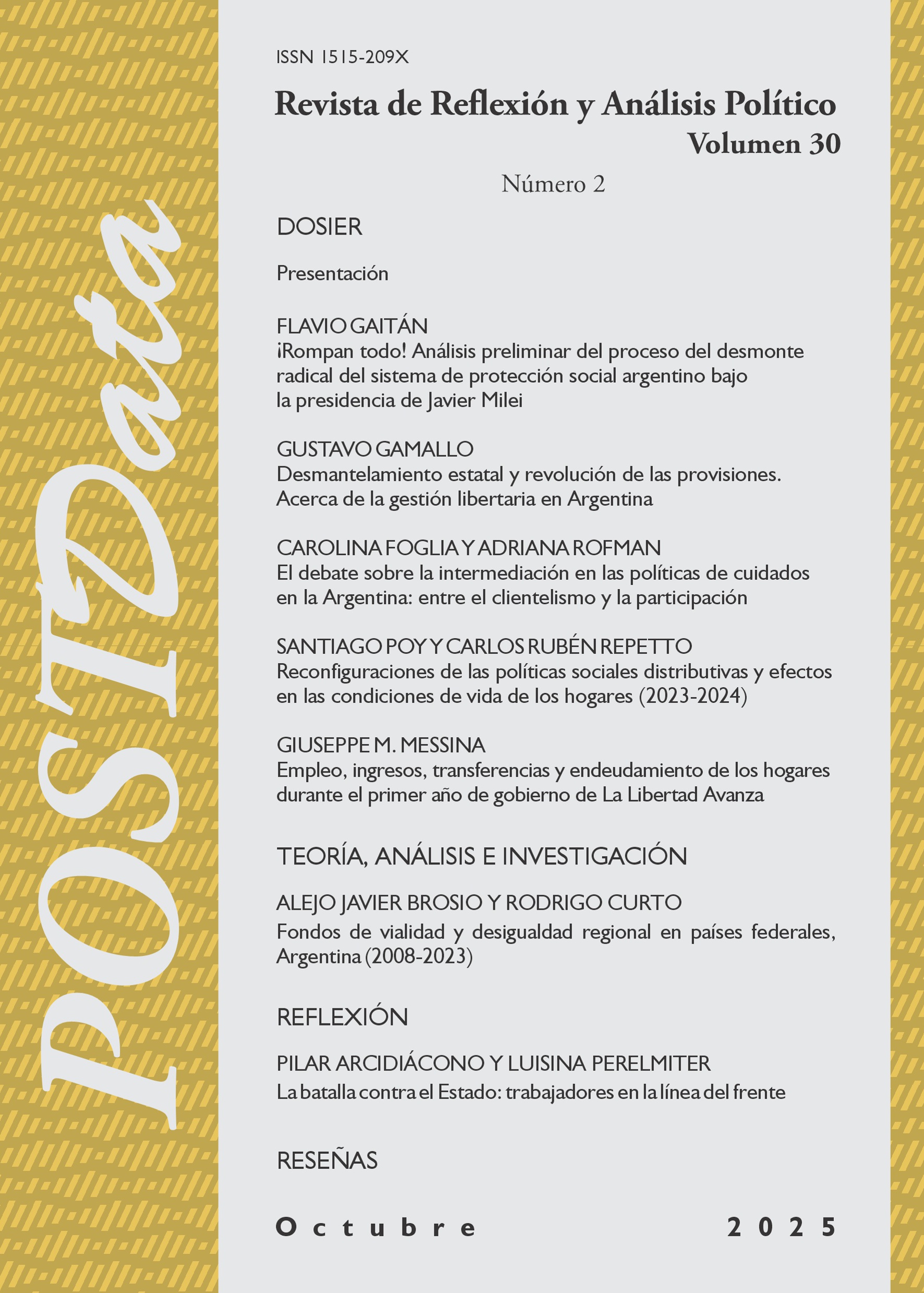Employment, Income, Social Transfers, and Household Debt During the First Year of La Libertad Avanza’s Government
Keywords:
Javier Milei, fiscal adjustment, social protection, labor market, indebtednessAbstract
The article examines the main measures implemented by La Libertad Avanza during its first year in office and their effects on employment, income, non-contributory transfers, and household indebtedness. Javier Milei’s administration carried out a fiscal adjustment equivalent to approximately five percentage points of GDP, through two strategies: the so-called licuadora (“blender”), referring to the erosion of real incomes by granting nominal increases below inflation in wages, pensions, and social programs, and the motosierra (“chainsaw”), meaning deep and wide-ranging cuts to public spending, including public works, transfers to provinces, subsidies for public services, and public sector employment. The impact of these policies was socially regressive, leading to a marked deterioration in social protection, with the notable exception of transfers to households with children and adolescents. In this context, poverty reached historical highs, particularly in households with minors, although it declined in the second half of 2024. Indebtedness became a key survival strategy among the most vulnerable sectors, while higher-income households improved their living conditions by accessing credit for durable consumption and investment.





